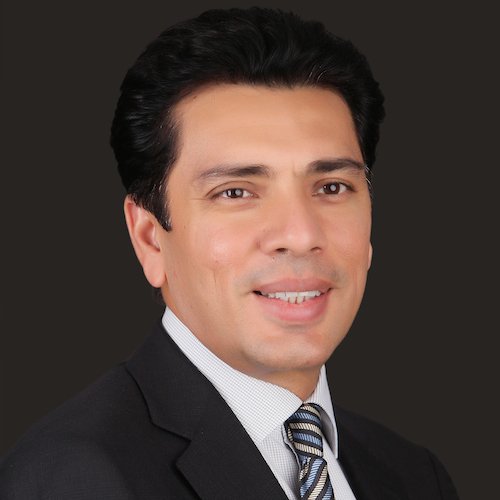'Reverse innovation can address affordability'
September 29, 2015 | Tuesday | News | By BioSpectrum Bureau
'Reverse innovation can address affordability'
Mr Vishal Bali, co-founder & chairman, Medwell Ventures
The keynote address was delivered by Dr Diego Olego, senior VP, Philips technology and R&D management; and Mr Vishal Bali, co-founder and chairman, Medwell Ventures.
Mr Bali pointed that healthcare needs has to be on the national agenda.
"It is important to put healthcare sector right in the forefront. It is the need for advances in healthcare for the citizens and the nation. Budget-after-budget we have the same conversation about India spending 1 percent of its GDP for healthcare. Eighty percent of India still pays healthcare costs out of pocket. The moment you make healthcare a national agenda, that is when you create more opportunities to deliver healthcare to the last mile."
Today, 76 percent of all Fortune 500 companies in the world are in the healthcare business.
There are 7,500 healthcare start-ups across the globe, having the biggest forces of disruption in the global healthcare industry.
In the last one year alone, there were about 95 M&As in the medtech space totaling to a value of $20 billion, and the Indian healthcare start-ups has raised $108 million in venture capital funding.
Mr Bali also commented that reverse innovation can create affordable healthcare solutions.
"Reverse innovation can create maximum innovations with affordable solutions in digital technologies. We are a country of scarce healthcare resources. There is a huge ecosystem in India which is working towards creating affordability. We need to stop thinking in terms of infrastructure and start thinking about services, technologies, and platforms, and convergence of these services and technologies. The phone is the new gateway to the healthcare globally. Affordability cannot come at the cost of quality and precision. Today we see a lot of technology mobility which has not happened in the past."
Early diagnosis and discharge of patients at the right time from hospitals are seen as key elements that contribute to healthcare costs.
Dr Diego Olego spoke in terms of how companies can go about innovating, and the framework in which they innovate to address the global challenges because of finite resources.
"Billions of people lack access to basic healthcare. Innovation will play an important role here. We are thinking along the health continuum, and we need to look at the continuum holistically to tackle the challenges. Firstly, we need to innovate keeping in mind how it will affect the continuum of healthcare. Secondly, we got to innovate solutions that will attack and solve challenges end-to-end. Lastly, it is about innovating at the intersections. Innovation is no longer an idea which starts in a garage. It has to be placed in an ecosystem and worked together with other stakeholders in the healthcare delivery system," Dr Olego said.
Dr Olego believes that data will play a significant role in healthcare.
"One of the major challenges we have today is that data is completely fragmented. We need to address the issue of making data flow seamlessly. From our perspective, data becomes crucial towards healthcare delivery across continuum of care," he added.
Currently, India has shortage of supplies in healthcare including hospitals, physicians, technologies and paramedical forces. It lacks 6,000 beds in the country according to WHO.
"This is not going to fill overnight. We are a country where healthcare is a fastest growing sector. On one hand we have shortages in the healthcare ecosystem, and on the other, we have the greatest opportunities, witnessed by the rapid growth of healthcare in India," Mr Bali remarked.
In the chronic diseases segment, India is amongst the highest in the world. "We are 1.3 billion people and India has a genetic proposition for chronic diseases. We have to start rebuilding healthcare in a new dimension using digital technologies to create an entire opportunity of accessibility and higher affordability, which is what the future healthcare is going to be about," opined Mr Bali.
He highlighted that it is time to rethink healthcare for India and not just in terms of infrastructure.
"We have dealt with infrastructure for a long time. Healthcare infrastructure creation is getting difficult day-by-day. We need to start looking at healthcare challenges to create better ways in filling the gap. Challenges of affordability and accessibility is there in every country. Our per capita spend on healthcare is less than $100 a year for the vast Indian population," he held.
The huge disruptions happening in the healthcare start-ups ecosystem are the forces of change, where, companies are using mobile technologies which answers the challenges, Mr Bali noted.
"This is one of the biggest opportunities," he mentioned, "where India can use the great power of connectivity between healthcare and technology providers, and provide better platforms for healthcare delivery in the country. It is time for us to think differently of new models."
In 2014, there were 103 FDA-approved healthcare apps in the market.
"Is this going to be an app-led healthcare world? The answer is a 'yes'. These apps meet the gold standard of precision, innovation, and safety, and are now going to be prescribed by clinicians. It is beginning to rule us, and we need to wake up to the reality," Mr Bali stated. "This is a powerful time in our present and future. Never before we have seen so much disruptions happening at the same time."
Mr Bali concluded by saying, "It is important to innovate knowing the market opportunities behind the innovation, and try to scale up so that the market opportunities are realized. It is about meeting an unmet need, and the scale of that opportunity, and identifying a market that will go and absorb it."









